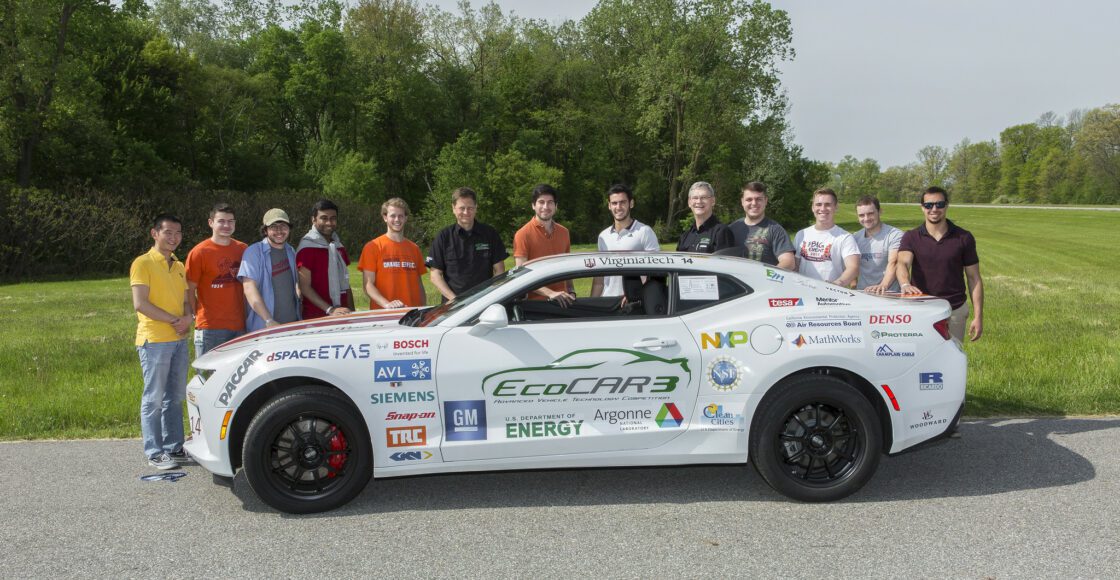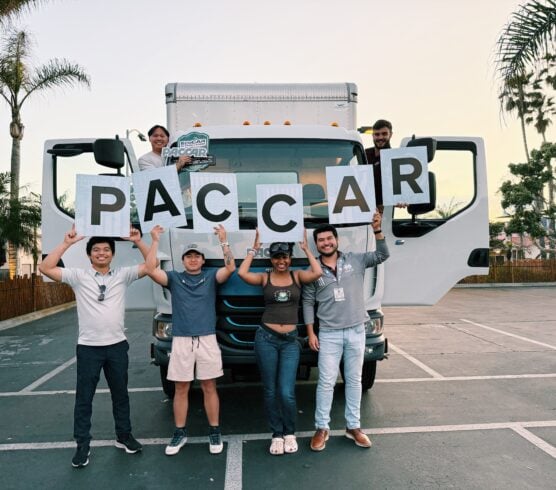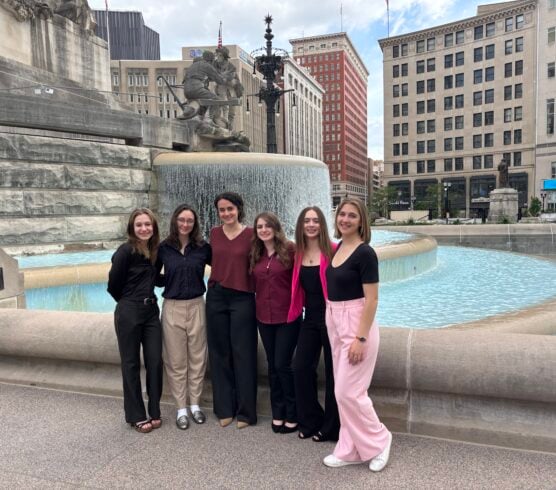From crossing into Canada with an experimental vehicle to overseeing a team charged with keeping research into space travel safe, Christie Swarts has experienced more than she anticipated in her life.
“Never in my wildest dreams did I think this is what I’d be doing,” Christie said. “You don’t graduate from college thinking you’re going to end up working for NASA, at least not with a mechanical engineering degree.”
Christie, however, is doing just that as a manager of pressure systems recertification for Jacobs Technology Inc., a contractor for the NASA Langley Research Center in Virginia. She oversees a team of engineers and engineering technicians who inspect and certify the high-pressure systems that are used in research for everything, from atmospheric sciences to spacecraft and the next-generation of fighter jets.
Her team certified the systems used by researchers to test NASA’s Orion spacecraft, which was built to take humans farther into space than anyone has gone before.
“We have everything from vacuum systems to 6,000-psi methane systems,” she said. “It’s exciting to say we contribute to the safety of the research teams here at NASA Langley who are making safe travel possible.”
Christie’s experience in supervising a team goes back to when she was a student at Alfred University in Alfred, New York, where she was the project manager for the institution’s Hybrid Electric Vehicle (HEV) Challenge team.
The HEV Challenge was the third Advanced Vehicle Technology Competition of its kind. Students designed and built vehicles that operated on a variety of fuels, including M85, E100 and gasoline. The teams used vehicles supplied by Ford Motor Co., Saturn and Dodge. The design and overall dynamic performance of their vehicles were evaluated in events that included acceleration, handling, range, emissions, fuel economy and consumer acceptability.
Christie took part in the program from 1994-96, saying it contributed to her professional growth and provided valuable skills that she’s taken with her.
“I was doing what I do now, which is project management,” she said. “I was the one coordinating the fundraising, marketing, the logistics and schedules. Even though my degree is in mechanical engineering, my senior project was basically scheduling Alfred University’s AVTC competitions.”
Wearing all of those hats was put to the test when the team was attempting to cross an international border to get to the Motor City for a competition.
“We had a hybrid vehicle and the fastest way to get to Detroit from where we were in New York was through Canada,” she said. “We had to figure out how we were going to go through customs with an experimental vehicle and it used ethanol so we had to figure out how much ethanol we could legally take across the border.
“As an engineer, you don’t normally deal with those kinds of things.”
The HEV Challenge also meant working with art and design students to develop flyers for the team and marketing students to help spread the word to the local community of fundraising events.
“What other program in college will you get to coordinate a group of 20 or 30 students, travel with them, learn about budgeting and marketing,” Christie said. “As an engineering student, you’re kind of in one little lane and by participating in something like AVTC challenges, you get to broaden that lane.”
Christie still keeps in touch with some of her former teammates and has followed the different challenges Argonne National Laboratory has created for students to participate in. She recommends students seriously consider getting involved because of the great experiences and skills that come with being part of the team.
“It’s a great opportunity to get out of that single lane and when you’re an engineering student, you may not get the chance to learn about dealing with other organizations to get tasks accomplished or learn about putting together a marketing plan, a fundraiser, or budgeting and scheduling,” Christie said. “It’s all really applicable in what you do in real life and you may not get access to all of that in a classroom setting.”




